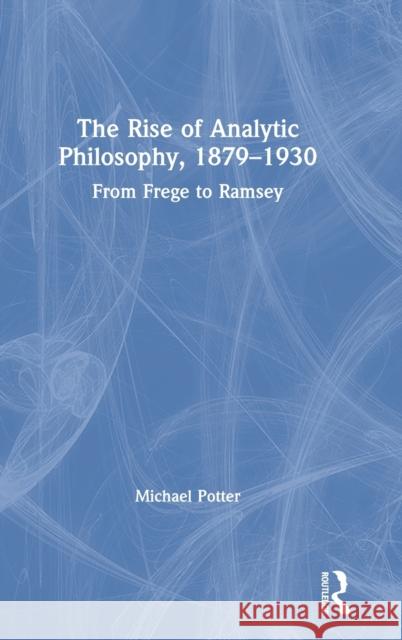The Rise of Analytic Philosophy, 1879-1930: From Frege to Ramsey » książka
The Rise of Analytic Philosophy, 1879-1930: From Frege to Ramsey
ISBN-13: 9781138015135 / Angielski / Twarda / 2019 / 506 str.
In this book, Michael Potter offers a fresh and compelling portrait of the birth and first several decades of analytic philosophy, one of the most important periods in philosophy s long history. He focuses on the period between the publication of Gottlob Frege s Begriffsschrift in 1879 and Frank Ramsey s death in 1930. Potter--one of the most influential writers on late 19th and early 20th century philosophy--presents a deep but accessible account of the break with Absolute Idealism and Neo-Kantianism, specifically, and more generally with many of the metaphysical preoccupations of philosophy s preceding history. Potter s focus is on philosophical logic and philosophy of mathematics, but he also relies heavily on important issues in metaphysics and meta-ethics to complete his story. The book provides an essential starting point for any student or philosopher attempting to understand Frege, Russell, Wittgenstein, and Ramsey as well as their interactions and their intellectual milieux. It will also be of interest to a great many philosophers today who want to illuminate the problems they work on by better knowing their origins.
KEY FEATURES:
1. Discusses the interconnections of Frege, Russell and Wittgenstein founding thinkers in the history of analytic philosophy and also brings the neglected Frank Ramsey into this conversation, providing a unique focus and depth to an introductory text
2. Increases the general awareness of the importance of the history of analytic philosophy for today s non-historical debates, giving the book appeal in all areas of analytic philosophy
3. Written by one of the most influential philosophers of logic and writers in the history of analytic philosophy
4. Written for upper-level undergraduates, guaranteeing widespread accessibility
5. Includes coverage of topics and issues neglected in competing publications, including Russell s "Principles," solipsism in the "Tractatus," and the contributions of Frank Ramsey
6. Emphasizes the chronological development of authors views so as to provide a better understanding of their motivation
"











